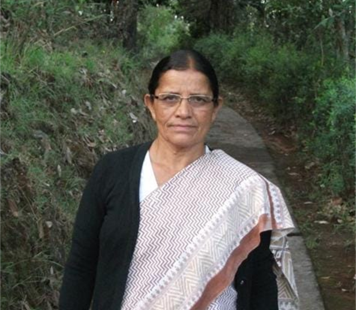Born in a village of Pithoragarh district of Uttarakhand in 1958, Basanti Devi’s life was never easy. She got married at the age of twelve, only to become a widow at fourteen. What transpired after that is nothing more than an inspiration for several women across the country. After losing her husband, Ms. Devi visited the Mahila Lakshmi Aashram Kausani which became her home for the years to come. It is said that Ms. Devi was highly impressed with the atmosphere of the Aashram which she found to be free from the evils of untouchability and social discrimination and full of dignity for women.
By Heena Samant
At the aashram, apart from completing her education, Ms. Devi was also involved with the task of opening Bal Baris which are recreational centers for children in remote villages. These recreational centers also looked into their nutritional requirements. However, a breakthrough came when Ms. Devi was assigned the task to save water and the environment in the Kosi river basin. The river, which was the lifeline of the people living in the river basin, was depleting at an unsustainable rate due to deforestation. In other words, the river was dying and so was the forest in that region.
Ms. Devi launched her campaign in 2003 during which she began to visit nearby villages and realized that the condition of women was very pathetic as they were involved in bringing firewood from the jungles and also worked in fields. Hence, she decided to first talk and convince the women of these areas to not cut the trees and instead collect only dry wood for fuel. She then formed a mahila dal (women’s association) to implement these changes and later she formed many such associations in several villages to educate people against cutting trees.
In a span of about 20 years, hundreds of women from several villages united to protect the trees, plant more of them, and eventually were able to save the river. These women not only pledged to save the river by using only dead wood, but planted lakhs of broad-leaved Oka trees, and were actively engaged in preventing and putting our forest fires. Ms. Devi along with her mahila mandal also went on a padayatra (walk) along the Kosi river region to educate women across the area to not cut the trees in order to save the Kosi River. This movement was known as “Save Kosi Movement” which continues even today with the help of the Mahila dals.
These measures finally led to surplus water in the region. It is said that these measures not only worked towards saving the environment along the Kosi region but it also empowered women as this movement led them for a greater participation in society for social work. Additionally, Ms. Devi and her mahila mandal’s aim was to spread the message about saving jal, jungal and zameen (water, forest, and land). It is also interesting to note that Ms Devi’s movement was inspired by the Chipko Andolan. Hence, due to her contributions towards the revitalization of the Kosi river and empowering women in the society, Ms. Devi was honored with the Nari Shakti award in 2016 and a Padma Shri award in 2022.
This article first appeared in www.vifindia.org and it belongs to them.








